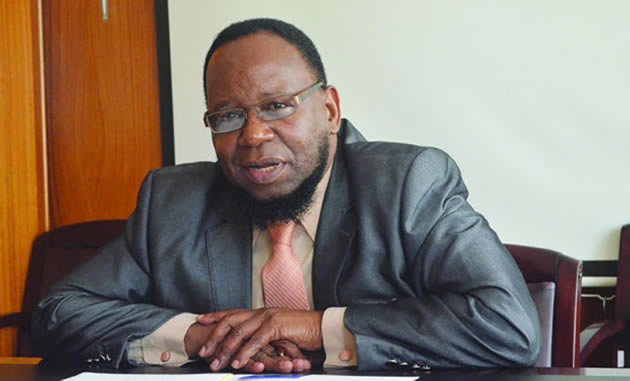40 000t grain for schools feeding scheme

Tafadzwa Ndlovu Herald Reporter
Government has secured 40 000 tonnes of grain for the schools feeding scheme expected to start next month. In an interview with The Herald yesterday, Primary and Secondary Education Minister Dr Lazarus Dokora said the schools feeding programme would be carried out in three phases starting with the infant level, that is from early childhood development to Grade Two levels.
He said the programme would be extended to junior school next year and to secondary schools later.
“We now know that we need 37 000 to 40 000 tonnes of grain over a term for distribution nationally to all our schools in the rural areas.
“We are looking at feeding more than 3,2 million children and we should begin to see activity when schools open next week. Urban areas have been excluded to the extent that we demarcated certain wards, for instance wards in Epworth and peri-urban settlements like Caledonia,” he said.
Dr Dokora said schoolchildren would receive one hot meal a day, adding they realised that most children came to school on an empty stomach last term, while others dropped out of school due to hunger.
“Kids are not going to be given foodstuffs to carry home, but will get one hot meal a day. There are donations that are coming in as well as purchases being made of beans, rice and cereals and in some cases we will ask those communities that have access to other forms of carbohydrates to chip in.”
Cabinet, a fortnight ago, approved a $200 million national schools feeding scheme to feed schoolchildren, to ensure food security following the prevailing El Nino-induced drought.
Meanwhile, the United Nations Food and Agriculture Organisation (FAO) has launched the national food control assessment tool, which is set to improve the process of monitoring the quality and safety of food imported and produced in the country, writes Bianca Leboho.
The monitoring system is being done in partnership with the World Health Organisation (WHO).
The tool, which will be field tested in the country, is meant to ascertain Zimbabwe’s competence in monitoring food safety and quality and ensure that the country continuously improves its food monitoring system.
Launching the tool in Harare on Tuesday, permanent secretary in the Ministry of Health and Child Care Dr Gerald Gwinji said food safety was of importance to Government hence the need to support the initiative.
“The safety of food is of paramount importance hence why FAO, WHO and Government have come together in order to look at our food control tools,” he said.
“We must ensure the safety of food that is imported into the country and also of food that is grown and reared locally.”
Dr Gwinji said the process of monitoring the safety of food in the country cut across many Government ministries and agencies, which include the Ministry of Health and Child Care, Ministry of Agriculture, Mechanisation and Irrigation Development and local authorities.
“Zimbabwe has food security assessment tools already in place but these agencies are not coordinated,” Dr Gwinji said.
“The launch of the assessment tool in Zimbabwe by FAO and WHO will help us to coordinate all the food security assessment agencies and ensure that we develop a standard tool which will help us to measure the standard of food that is produced and imported into the country.
“We import a lot of food and sometimes it comes in through informal borders hence there is need for a good structure with which to monitor food.”
FAO sub-regional coordinator and Country Representative Mr David Phiri said the food control system assessment tool has already been tested in The Gambia, Zambia, Morocco and Sierra Leone.











Comments